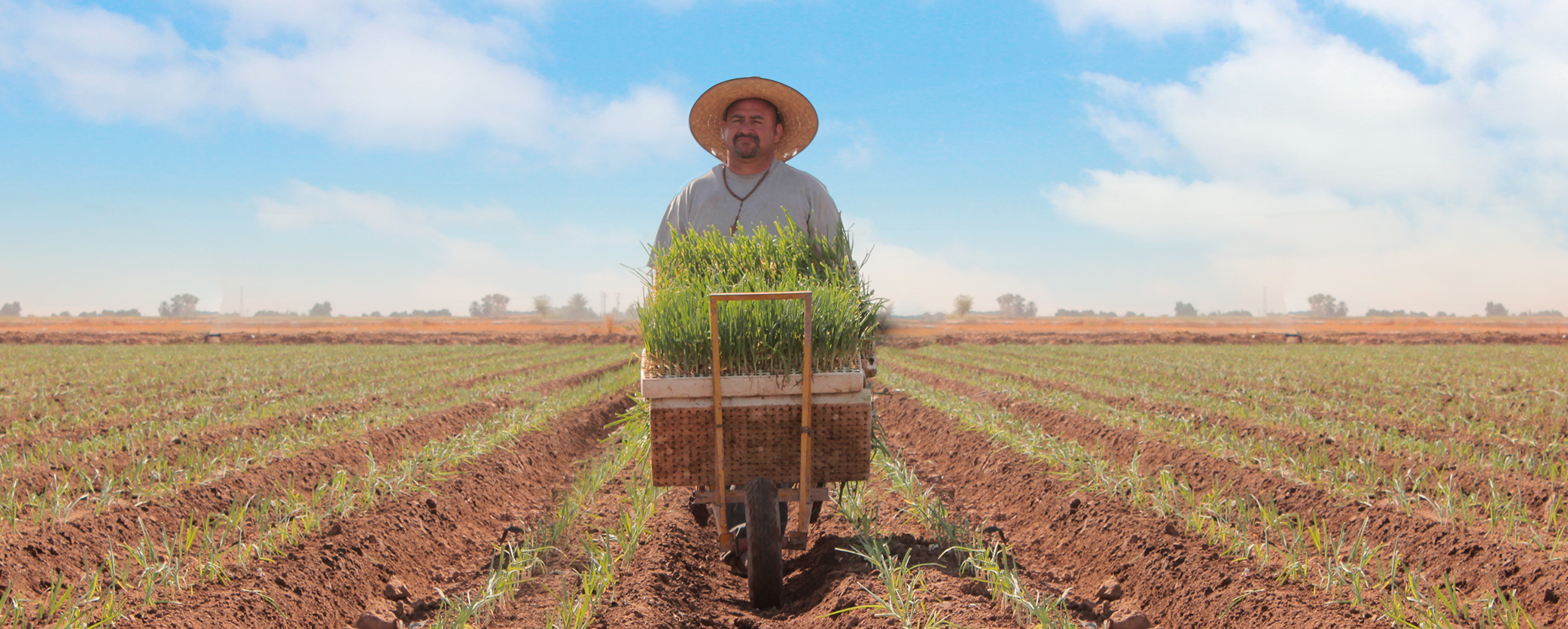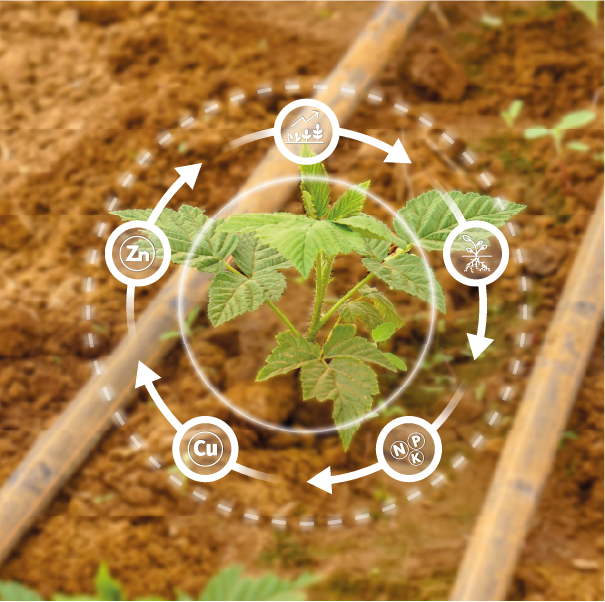Regenerative agriculture

Using resources in a more sustainable way.
The soil is the main component in agriculture– without soil, there are no crops. For that same reason, and in order to ensure a long-term use of it, it is essential to provide adequate care. The constant use of untended soil has caused wear and impact in the world which is negatively reflected in crops’ quality and production capacity. Soil’s degradation is a rising phenomenon that is having a negative impact everywhere and agriculture finds itself in the receiving end apart from it affecting people as well.
According to a 2007 report from the Secretariat of Environment and Natural Resources (SEMARNAT per its initials in Spanish), with the passage of time, the soils of Mexico’s surface have had a decrease in fertility of 92.7%, followed by pollution caused by chemical residues, salinization, alkalization, and eutrophication. Besides, 45.2% of Mexico’s surface already exhibits man-made degradation.
The purpose of regenerative agriculture is to leave the land in better condition for the future, and this can be achieved by implementing good practices that procure the land’s restoration for its extended use without sacrificing quality. A great start is the responsible use of resources to minimize the impact in the environment and the population.

Specialized in marine sciences and plant biostimulation, in Algas Pacific we encourage the rational and biorational use of products for nutrition and biostimulation of plants and soils. Since 2012 we have developed sustainable solutions based on seaweed extract and other marine byproducts. We have exhibited their effectiveness in the field through the AP Method by collaborating alongside farmers in order to obtain more profitability.
This method is one of the solutions for the situation currently happening around the world. It has become necessary to do something about it to prevent more harmful consequences to the agricultural sector and the planet.
The commitment to use this method is an answer from the agricultural sector to ensure a better future for agriculture and generations to come. This will allow that soils are able to produce for a longer period of time retaining its capacity and quality, thus reversing some part of the effects caused by global warming.




